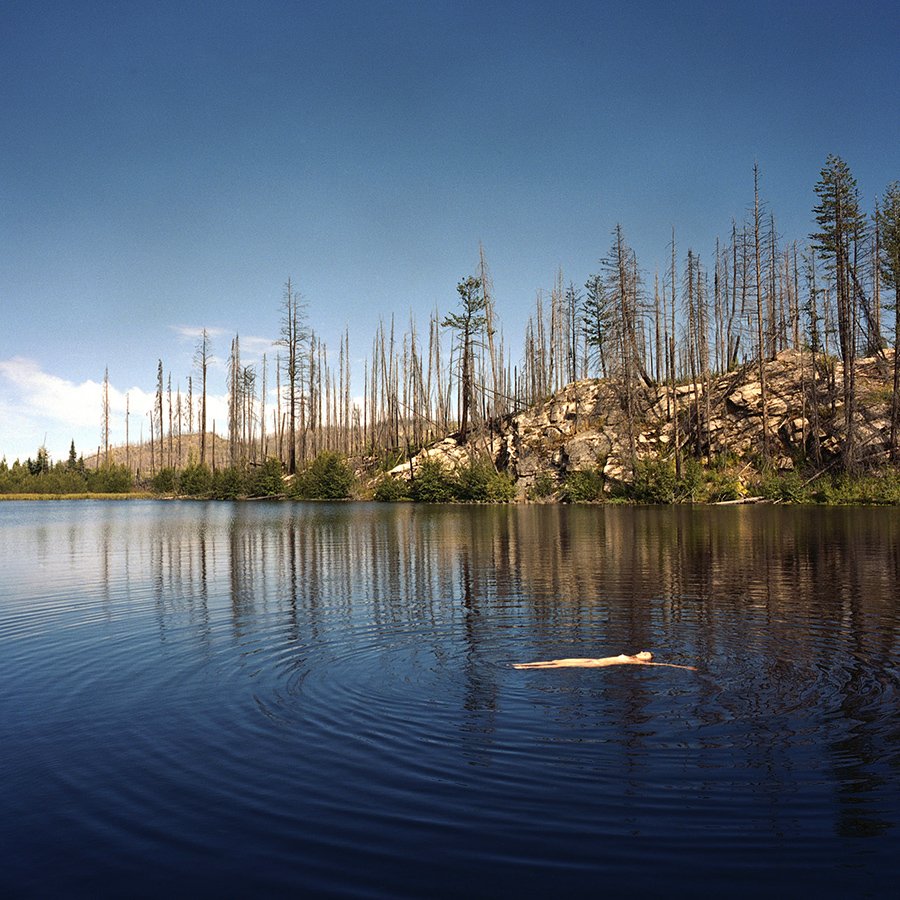
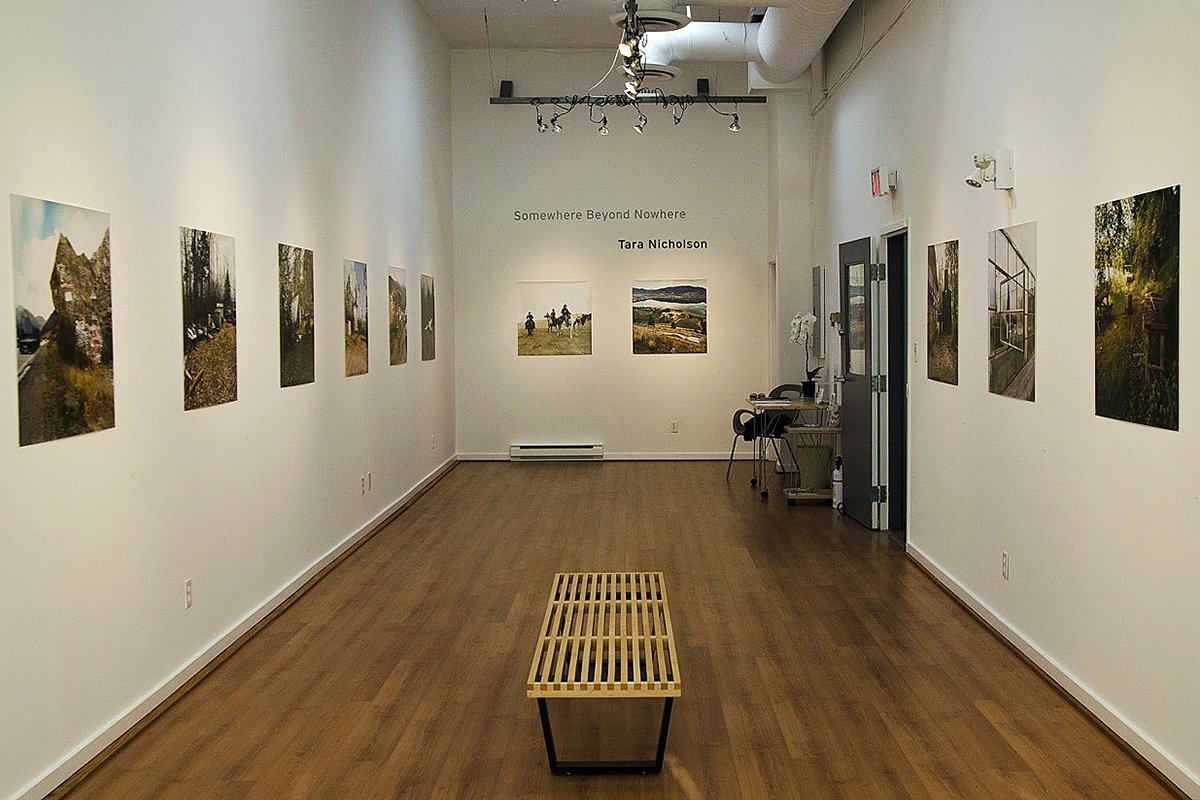
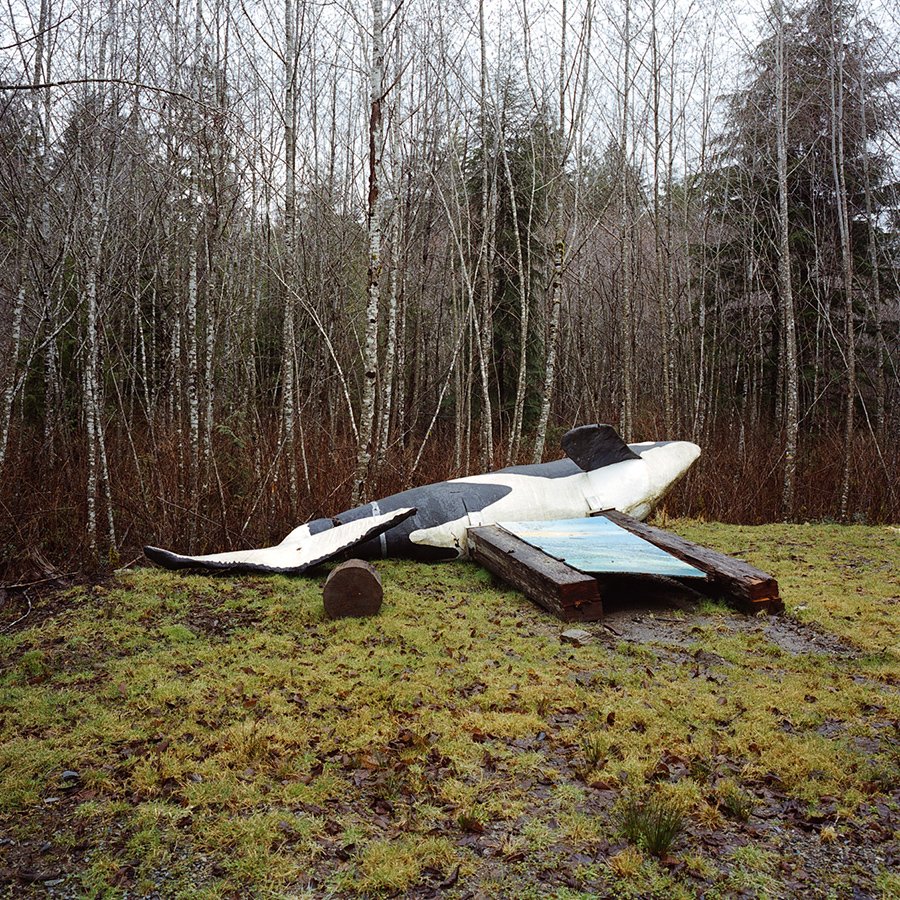
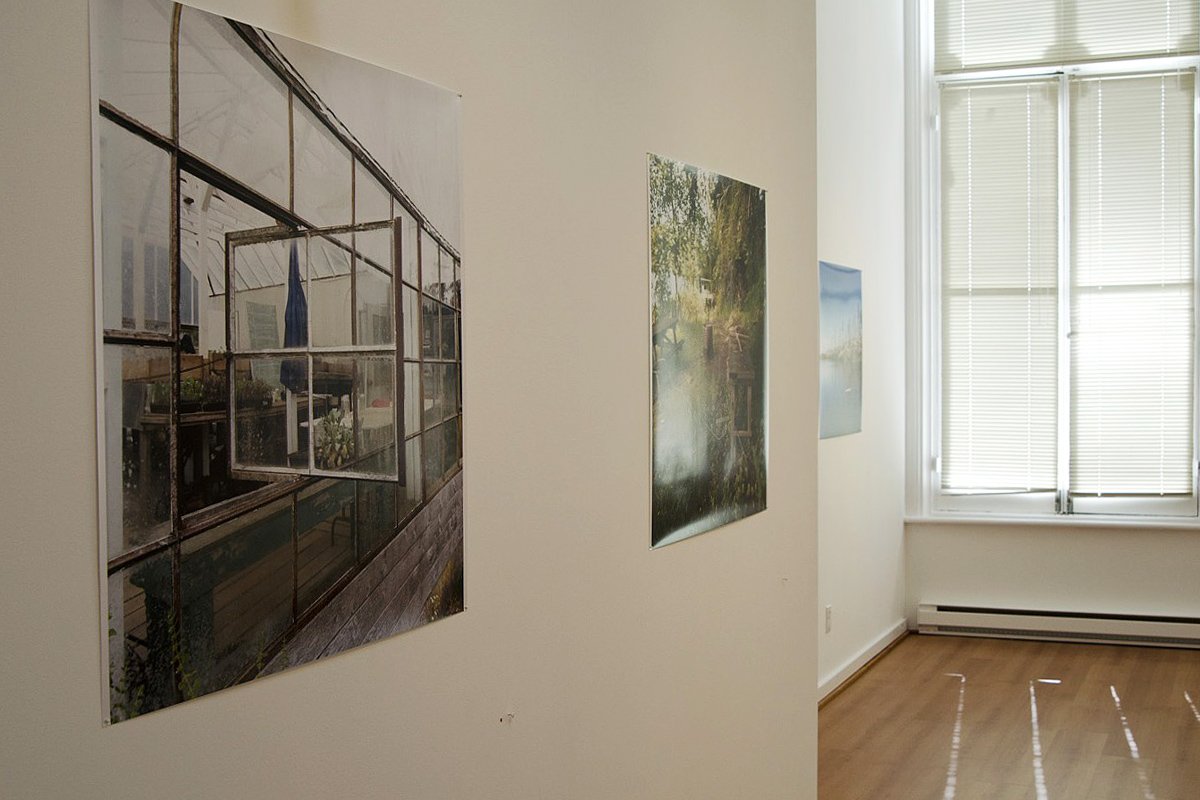
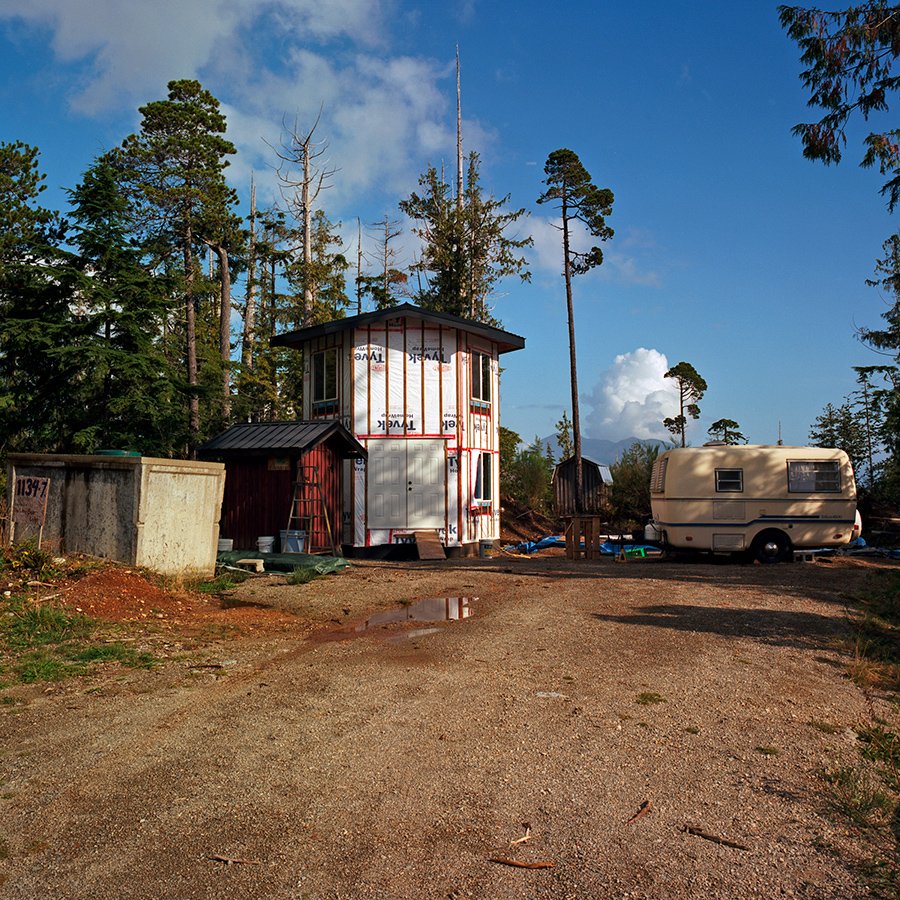
Somewhere Beyond Nowhere
Tara Nicholson
September 7 to October 6, 2012
Since completing her MFA thesis work two years ago, Wilderness and Other Utopias photographed in Haida Gwaii, British Columbia, Tara Nicholson has integrated the peripatetic tendency prevalent in so much of contemporary art practice further into her work, using travel and temporary relationship as keys for developing a body of work based on locations in British Columbia, Alberta, Ontario, Quebec and Holland. She insinuates herself into new communities to determine local byways, campsites and landmarks, temporary shelters and ephemeral spectacles: a swimming hole in an abandoned quarry, ski-doo graveyard, a decaying papier-mâché mascot killer whale, dumped like a corpse at the edge of summer woods.
A phrase in Nicholson’s exhibition statement undertakes the contradictory conjoining of “local and remote.” This in itself is a comment on the disjunctive way that modern development thrusts fragments of suburbia into what was previously wilderness, at the same time leaving behind pockets of dilapidation in the form of desolated retreats of past-tense recreational seclusion or forsaken networks of resource extraction infrastructure. Lapsed, lost or unlikely habitation abounds in this work, from a teepee on Salt Spring Island, to a flagging Conservative campaign sign tacked to an aging industrial compressor, to a rustic tower clad in pristine Tyvek; the vacated hideaway, the forgotten boomtown, or subcultural otherworld gone to seed. In one of the images from Holland, Kuierpadtien, the torqued sheath of a worn blue water slide relays the colours of an improbably idyllic tableau of children paddling on an artificial lake. Nicholson seeks out visions that in her words, “hover between reality and fantasy,” a fluxing of nature and artifice too precious or precarious to last forever.
Nicholson relies on firsthand experience and anecdote, noting, “often I try and find a place from memory or look for things I specifically remember, textures, light or structures.” Paradoxically, she employs this well-tuned sense of place to “challenge identity,” and its attendant territoriality, citing John O’Brian and Peter White’s book, Beyond Wilderness: The Group of Seven, Canadian Identity and Contemporary Art (McGill-Queen’s University Press, 2008), which, in unravelling the nationalist mythology of Canadian landscape, examines the way notions of “northernness” and “wilderness” became part of the country’s cultural identity in the early twentieth century. Nicholson is interested in the persistence of such myths, even as her own approach echoes the restless explorations of early Canadian painting (the title of her show almost an answer to a recent survey of Emily Carr at the Art Gallery of Greater Victoria, On the Edge of Nowhere.)
Outside of the viewfinder’s capture, some moment of human interaction is often part of the picture. Nonetheless, Nicholson chooses in many (but not all) cases to exclude figures from her work. This creates an ambiguous but charged scene, recalling Hemingway’s dictum that a story should include purposeful omissions in the crafting of its narrative. Those that remain are often strikingly isolated, as in one particularly vertiginous composition of a naked woman floating in a lake overlooked by a fire-scorched horizon of desiccated pines (this turns out to be a self-portrait), or a trio of riders on an overcast beach that merges blurs in hooves and hair with roving patches of grey on the horses and sand into something inaudible, emblematic and weightless with nostalgia.
— John Luna, Galleries West, Fall/Winter 2012
Tara Nicholson grew up in Northern British Columbia, spending time in the Okanagan and on Vancouver Island. She has attended artist residencies in Newfoundland and Banff, and exhibited work across Canada, at The Parisian Laundry Gallery, Montreal, The Jeffery Boone Gallery, Vancouver and a recent exhibition in the 2012 Calgary Banff Canmore Exposure Photography Festival. Nicholson teaches at the Vancouver Island School of Art and the University of Victoria.